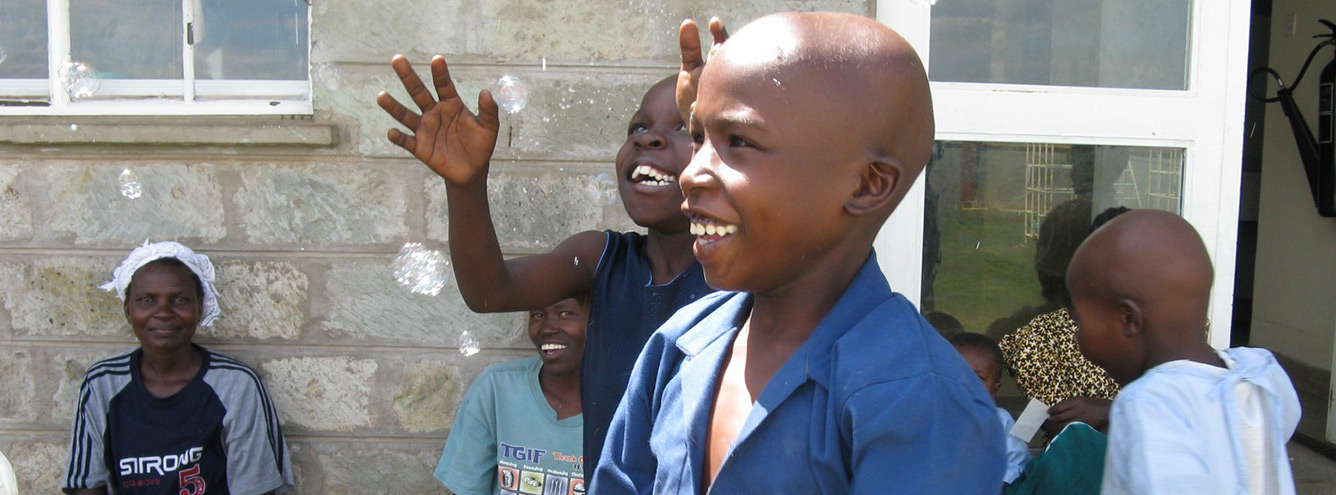Childhood cancer affects the entire family. Special care is needed to help them cope.
Cancer treatment and its effects on daily life can overwhelm the child and family’s ability to survive this trauma. A child’s chance of cure is affected by their overall mental and physical well being, and that of their parents. Improving quality of life for the child and their family is therefore an essential part of comprehensive cancer care.
Family Support in Developed and Developing Countries
In the developed world, many resources are available to families following their child’s cancer diagnosis, including specialist social workers, family housing near hospital, child life specialists, support groups, wish-granting organizations, camps, holidays, gift-giving programs and children’s hospice care.
The experience in developing countries is significantly different. Rarely do families have access to childhood cancer support services. This causes rapid loss of hope, extreme suffering and death that could be prevented. Abandonment of therapy is the primary cause of treatment failure among curable children.
Read about the challenges families encounter, and our solutions to overcome them.
The Challenge
Lack of clear retinoblastoma information, and limited consultation time with doctors means parents are frequently unable to make fully informed decisions about their child’s medical care. Essential care is often delayed while parents search for reliable information from different doctors of other countries.
Lack of public access to information about cancer, and especially cancer in children, has fuelled many harmful misconceptions. Stigma surrounding loss of an eye often prevents families from accepting life-saving surgery, and ignorance leaves communities powerless to help families in distress.
Our Solution
Regular parent meetings at Kenyatta National Hospital (Nairobi) and Moi Teaching and Referral Hospital (Eldoret) are supported by both ophthalmologists and oncologists who care for children with retinoblastoma. Doctors and parents are able to talk at length, ask questions and exchange information that helps both parents and the medical team.
A national network of parents is also growing, through which families can connect, share experiences and support one another. This is helping to increase understanding about the value of prompt treatment for newly diagnosed children, especially when families resist recommended surgery.
Members of our team in Nairobi and Eldoret make home visits and talk with Individual families by telephone to help them better understand retinoblastoma and its treatment. Many families contact us directly for support.
We also make home visits when a child fails to attend planned treatment, and telephone contact with the family is difficult. In this way, we have been able to help families accept and access treatment they would otherwise have refused or abandoned due to cost or fear of the treatment itself.
We are developing a range of print and audio-visual resources to supplement the information given by medical professionals. These will provide detailed information about various aspects of retinoblastoma care, helping parents to understand more and explain their child’s journey to relatives and friends.
Impact of Information and Emotional Support
Support groups and networks strengthen communication between parents and the medical team. Questions or challenges are raised and discussed before they negatively affect the child’s care.
Parents are becoming more informed, confident advocates for their children and their peers. They more readily report concerns about the welfare of their family or another child so issues can be addressed before the child abandons care.
With clear information, families are more able to consent to and comply with recommended treatment, and carry less fear about what lies ahead.
Impact of Improved Family Support
A comprehensive family support system may take many years to develop, but this is a crucial element in strengthening the care of children with retinoblastoma and other cancers. Through these programs, care for the child and entire family is being enhanced, and burdens are being significantly reduced.


